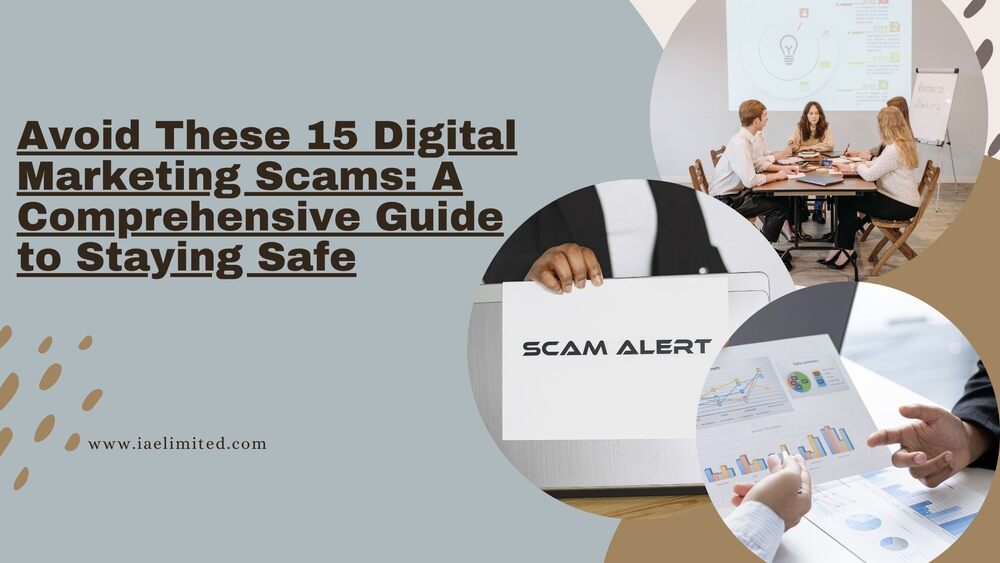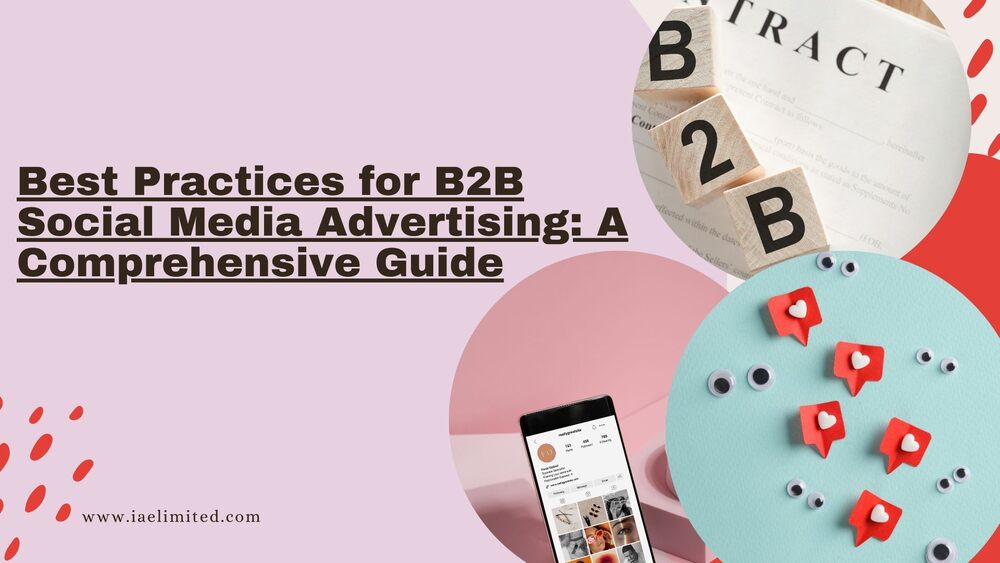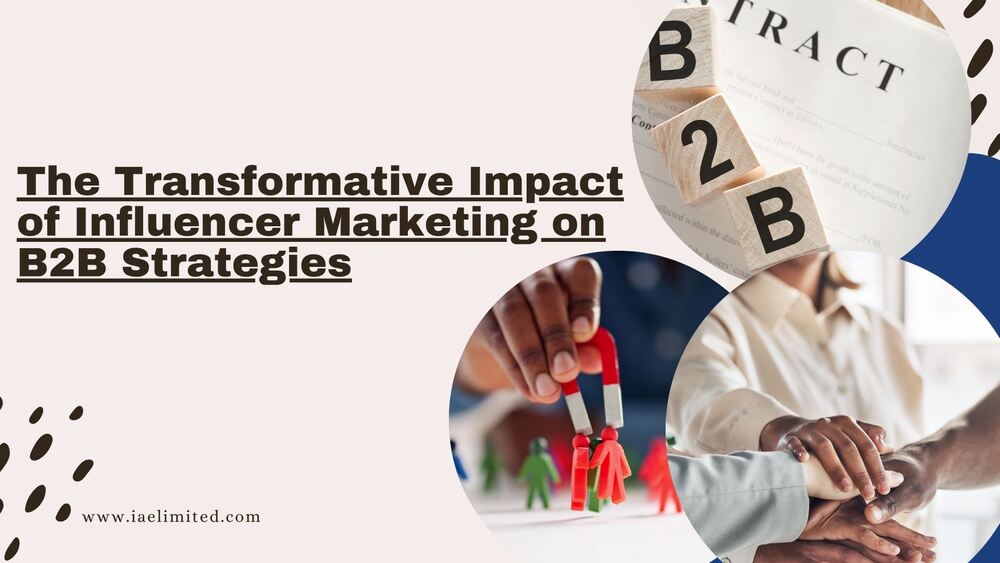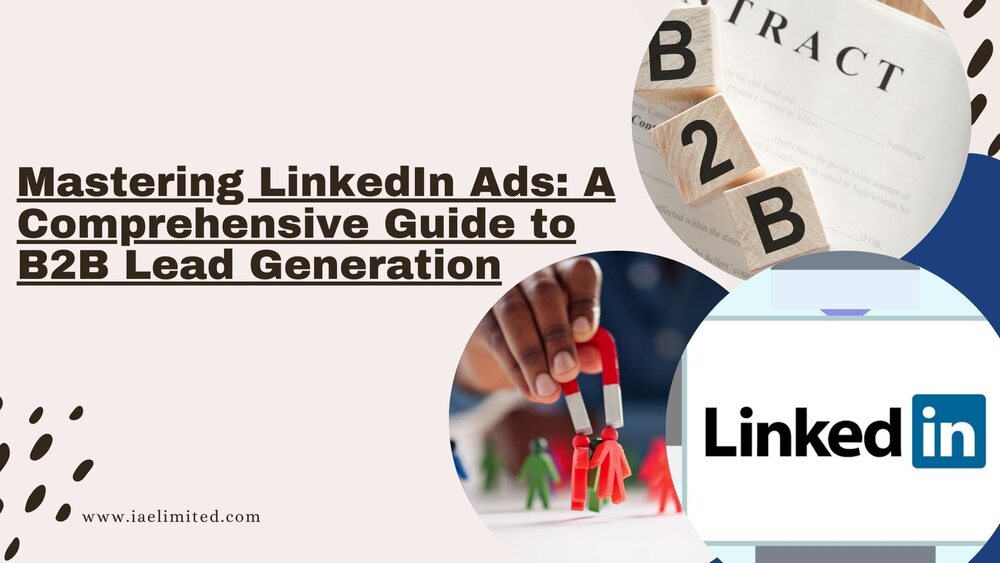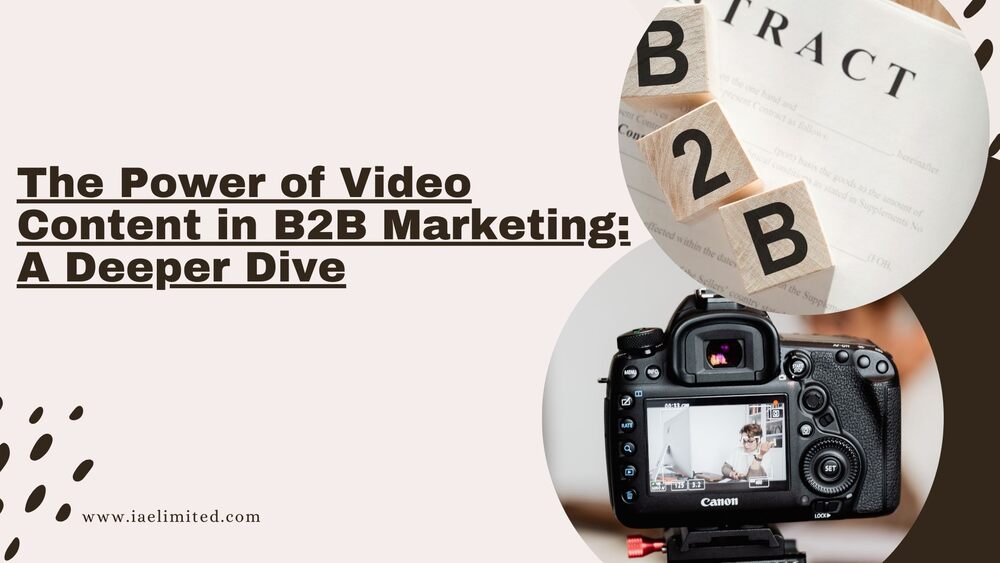Understanding B2B Social Media Marketing: All You Need to Know About B2B Marketing

Introduction
Table of Contents
Understanding B2B Marketing
B2B Social Media Marketing, short for business-to-business social media marketing, involves the promotion of products or services from one business to another on social media. Unlike B2C (business-to-consumer) marketing, which targets individual consumers, B2B marketing focuses on selling to companies, organizations, or other businesses.
Effective B2B marketing strategies are essential for businesses to build strong relationships, increase brand awareness, and drive sales. In this article we walk you through have to succeed in B2B Social Media Marketing, just like how we published an article on, differences between Digital Marketing and Traditional Marketing.
Importance of Social Media in B2B Marketing
Social media has become a vital tool in B2B marketing, offering businesses the opportunity to reach a broader audience, engage with potential clients, and establish authority within their industry. As more businesses recognize the power of social media, it is crucial to understand the different strategies and platforms that can enhance your B2B marketing efforts.
Overview of the 4 Types of B2B Marketing
To succeed in B2B marketing, businesses must leverage four main types: Content Marketing, Account-Based Marketing (ABM), Inbound Marketing, and Outbound Marketing. Each type plays a unique role in driving business growth and fostering strong relationships with clients.
The 4 Types of B2B Marketing
Content Marketing
Role of Content Marketing in B2B
Content marketing involves creating and distributing valuable, relevant content to attract and engage a target audience. In B2B marketing, content serves as the foundation for educating potential clients, building trust, and positioning your business as a thought leader.
Types of Content Used in B2B Marketing
Common types of content in B2B marketing include white papers, case studies, blog posts, webinars, and eBooks. These formats allow businesses to showcase their expertise, address industry pain points, and provide solutions that meet the needs of their target audience.
Account-Based Marketing (ABM)
How ABM Works in B2B
Account-Based Marketing (ABM) is a strategic approach that focuses on targeting specific high-value accounts rather than a broad audience. By personalizing marketing efforts for individual accounts, businesses can create highly relevant and tailored campaigns that resonate with key decision-makers.
Benefits of ABM for Targeted Campaigns
ABM offers several benefits, including higher ROI, improved customer relationships, and better alignment between sales and marketing teams. By concentrating resources on a select group of accounts, businesses can maximize their impact and drive significant results.
Inbound Marketing
Key Strategies for B2B Inbound Marketing
Inbound marketing involves attracting potential customers through valuable content and experiences tailored to their needs. In B2B marketing, this can include strategies such as content marketing, SEO, and social media engagement. The goal is to pull prospects into your sales funnel by providing solutions to their problems.
Effective Use of SEO in B2B Inbound Marketing
Search engine optimization (SEO) plays a critical role in inbound marketing by improving the visibility of your content on search engines. By optimizing your website and content for relevant keywords, you can attract more qualified leads and increase your chances of converting them into customers.
Outbound Marketing
Traditional vs. Modern Outbound Marketing
Outbound marketing, often referred to as “push” marketing, involves proactively reaching out to potential customers through methods such as email campaigns, direct mail, cold calling, and advertising.
While traditional outbound methods can be effective, modern outbound strategies often incorporate digital channels to enhance reach and engagement.
Integrating Outbound Tactics in B2B Marketing
To create a successful B2B marketing strategy, businesses should integrate outbound tactics with inbound efforts. For example, using targeted email campaigns to nurture leads generated through inbound content can help move prospects further down the sales funnel.
What Social Media is Best for B2B?
Why LinkedIn is the Go-To Platform for B2B
LinkedIn is the leading social media platform for B2B marketing, with over 700 million professionals worldwide. It provides businesses with the opportunity to connect with industry leaders, share content, and engage with potential clients in a professional setting.
Effective LinkedIn Marketing Strategies for B2B
To maximize your LinkedIn presence, focus on building a strong profile, sharing valuable content, and engaging with your network through comments and direct messages. Additionally, leveraging LinkedIn Ads can help target specific audiences based on job titles, industries, and other relevant criteria.
Using Twitter for B2B Thought Leadership
Twitter is a powerful platform for B2B marketing, particularly for establishing thought leadership. By sharing industry news, insights, and engaging in relevant conversations, businesses can position themselves as experts in their field.
Engaging with Industry Influencers on Twitter
Connecting with industry influencers on Twitter can amplify your brand’s reach and credibility. Engage with influencers by retweeting their content, participating in Twitter chats, and responding to their tweets to build relationships.
Targeting B2B Audiences on Facebook
While Facebook is often associated with B2C marketing, it also offers valuable opportunities for B2B marketers. Businesses can use Facebook’s advanced targeting options to reach specific industries, job titles, and companies.
Facebook Ads for B2B: Best Practices
When creating Facebook ads for B2B, focus on clear, concise messaging that speaks directly to your target audience’s pain points. Use high-quality visuals and strong calls-to-action to drive engagement and conversions.
Visual Storytelling for B2B on Instagram
Instagram is ideal for visual storytelling, allowing businesses to showcase their products, services, and company culture. For B2B, this can include behind-the-scenes content, product demonstrations, and customer testimonials.
Leveraging Instagram Stories and IGTV for B2B
Instagram Stories and IGTV provide additional opportunities to engage with your audience. Use these features to share quick tips, host Q&A sessions, and provide deeper insights into your business.
What is B2C Social Media Marketing?
Differences Between B2B and B2C Marketing
B2C marketing targets individual consumers, focusing on emotional appeals and immediate gratification. In contrast, B2B marketing emphasizes logical decision-making, long-term relationships, and value-driven content.
How B2C Strategies Can Influence B2B
While B2B and B2C marketing differ, B2B marketers can still learn from B2C strategies, particularly in areas like personalization, storytelling, and social media engagement.
Cross-Over Opportunities Between B2C and B2B Social Media
Businesses can leverage cross-over opportunities by applying B2C tactics, such as influencer marketing and user-generated content, to their B2B campaigns.
How Do You Engage B2B Customers on Social Media?
Building a Community
Creating a community around your brand can foster stronger relationships with your audience. Encourage discussions, share valuable content, and provide platforms for your customers to connect and share their experiences.
Personalization in B2B Social Media Campaigns
Personalization is key to engaging B2B customers on social media. Tailor your content and messaging to address the specific needs and challenges of your audience, making them feel valued and understood.
Creating Value-Driven Content
To keep your audience engaged, focus on creating content that provides value. This can include how-to guides, industry insights, and solutions to common problems your audience faces.
Interactive Content for B2B Engagement
Interactive content, such as polls, quizzes, and live Q&A sessions, can significantly boost engagement on social media. These formats encourage active participation and help build stronger connections with your audience.
Monitoring and Responding to Social Media Feedback
Actively monitor your social media channels for feedback and respond promptly. Addressing questions, comments, and concerns shows your audience that you care and are committed to providing excellent customer service.
B2B Social Media Marketing Examples
Case Studies of Successful B2B Social Media Campaigns
One example of a successful B2B social media campaign is IBM’s “Smarter Planet” initiative. This campaign leveraged multiple social media platforms to share stories, case studies, and thought leadership content, positioning IBM as a leader in technology and innovation.
What We Can Learn from Top B2B Social Media Efforts
Successful B2B social media campaigns often share common elements: a clear message, consistent branding, and a focus on providing value. Learning from these examples can help you refine your strategy and achieve better results.
B2B Social Media Marketing Agency
How to Choose the Right Agency for Your Business
When selecting a B2B social media marketing agency, consider factors such as industry experience, service offerings, and client testimonials. It’s important to choose an agency that understands your business goals and can tailor strategies to meet your needs.
Services Offered by B2B Social Media Marketing Agencies
Common services provided by B2B social media marketing agencies include content creation, social media management, paid advertising, and analytics reporting. These services can help you maximize your social media presence and achieve your marketing objectives.
Questions to Ask Before Hiring an Agency
Before hiring an agency, ask about their experience with similar clients, their approach to strategy development, and how they measure success. Ensure they have a clear understanding of your business and are committed to helping you reach your goals.
B2B Social Media Marketing Strategy
Developing a Comprehensive Social Media Strategy
A well-rounded social media strategy should include goals, target audience identification, content planning, and a distribution schedule. It’s important to align your strategy with your overall business objectives and continuously evaluate its effectiveness.
Key Elements of a B2B Social Media Plan
Key elements of a B2B social media plan include audience research
, content themes, posting frequency, and engagement tactics. Regularly review these elements to ensure your strategy remains relevant and effective.
Common Pitfalls to Avoid in B2B Social Media Strategy
Avoid common pitfalls such as inconsistent posting, ignoring engagement, and failing to track performance metrics. By staying proactive and data-driven, you can avoid these mistakes and optimize your strategy for success.
B2B Social Media Marketing Course
Benefits of Taking a Course in B2B Social Media Marketing
Investing in a B2B social media marketing course can enhance your skills, keep you updated on the latest trends, and provide actionable strategies to improve your marketing efforts.
Top Courses and Certifications Available
Popular courses include HubSpot Academy’s Social Media Certification, LinkedIn Learning’s B2B Marketing on LinkedIn, and Coursera’s Business Strategy Specialization. These programs offer valuable insights and practical knowledge for B2B marketers.
How to Apply Course Learnings to Your B2B Marketing
Once you’ve completed a course, apply what you’ve learned by revising your social media strategy, experimenting with new tactics, and continuously optimizing your approach based on performance data.
B2B Social Media Marketing Strategy Example
Real-World Examples of B2B Social Media Strategies
Cisco’s “The Network” blog is a prime example of a successful B2B social media strategy. Cisco uses this platform to share industry insights, product updates, and customer success stories, effectively engaging its audience and driving traffic to its website.
Lessons Learned from Successful B2B Social Media Campaigns
Successful campaigns teach us the importance of consistency, relevance, and audience-centric content. By focusing on these elements, you can create a social media strategy that resonates with your audience and drives meaningful results.
Small B2B Social Media Marketing
Challenges Faced by Small Businesses in B2B Social Media
Small businesses often face challenges such as limited resources, budget constraints, and lower brand recognition. However, with the right strategies, even small businesses can make a significant impact on social media.
Budget-Friendly Social Media Strategies for Small B2B Companies
Cost-effective strategies include leveraging organic content, repurposing existing content, and using free or low-cost social media management tools. Focus on platforms where your audience is most active to maximize your efforts.
Leveraging Niche Platforms for Small B2B Success
Niche platforms, such as industry-specific forums or LinkedIn groups, can provide targeted opportunities for small businesses to connect with potential clients and establish authority within their niche.
B2B Social Media Marketing Statistics
Key Statistics Highlighting the Importance of Social Media in B2B
Statistics show that 75% of B2B buyers use social media to support their purchase decisions, and 91% of B2B marketers use LinkedIn as a primary content distribution platform. These numbers highlight the growing importance of social media in B2B marketing.
How Data Can Shape Your B2B Social Media Strategy
Analyzing data from your social media campaigns can provide valuable insights into what’s working and what’s not. Use this data to refine your strategy, optimize content, and improve engagement.
Analyzing the Latest Trends in B2B Social Media Marketing
Stay updated on the latest trends, such as the rise of video content, the importance of personalization, and the growing use of AI in social media marketing. Incorporating these trends into your strategy can help you stay ahead of the competition.
B2B Social Media Content Ideas
Types of Content that Perform Well in B2B Social Media
High-performing content types include how-to guides, case studies, industry reports, and thought leadership articles. These formats provide value to your audience and position your brand as an industry leader.
How to Generate Fresh Content Ideas
To generate fresh content ideas, monitor industry news, listen to your audience’s questions and challenges, and analyze competitor content. Use these insights to create content that addresses current trends and audience needs.
Repurposing Content for Multiple Social Media Platforms
Repurposing content allows you to extend the life of your existing content and reach a broader audience. For example, a blog post can be transformed into an infographic, a series of social media posts, or a video.
How Do I Target My B2B Audience on Facebook?
Facebook Targeting Options for B2B
Facebook offers various targeting options, including job titles, company names, industries, and interests. Utilize these options to create highly targeted campaigns that reach your ideal B2B audience.
Custom Audiences and Lookalike Audiences
Custom Audiences allow you to target users who have interacted with your business, while Lookalike Audiences help you reach new prospects similar to your existing customers. These tools can significantly enhance your Facebook ad campaigns.
Best Practices for Facebook Ads in B2B Marketing
When creating Facebook ads for B2B, use compelling visuals, clear messaging, and strong calls-to-action. Test different ad formats, such as carousel ads or video ads, to see what resonates best with your audience.
What Are the Key Success Factors for B2B Social Media?
Measuring Success in B2B Social Media
Measuring success in B2B social media requires tracking key performance indicators (KPIs) such as engagement rate, lead generation, and conversion rate. Regularly review these metrics to assess the effectiveness of your campaigns.
Key Metrics to Track
Important metrics to track include reach, impressions, clicks, shares, and comments. Additionally, monitor website traffic and lead quality generated from social media efforts.
How to Optimize for Continuous Improvement
To optimize your B2B social media strategy, conduct regular audits, test new content formats, and experiment with different posting schedules. Continuously refine your approach based on data insights to achieve better results.
What Are the 4 Pillars of B2B Marketing?
Overview of the 4 Pillars
The four pillars of B2B marketing are: Content Marketing, SEO, Social Media Marketing, and Email Marketing. These pillars form the foundation of a successful B2B marketing strategy, driving brand awareness, lead generation, and customer retention.
How They Support a Successful B2B Marketing Strategy
Each pillar plays a critical role in supporting your overall marketing strategy. Content marketing provides value, SEO drives organic traffic, social media fosters engagement, and email marketing nurtures leads and maintains customer relationships.
Case Studies Demonstrating the 4 Pillars in Action
One example is HubSpot, which successfully integrates content marketing, SEO, social media, and email marketing to attract, engage, and delight its B2B audience. By aligning these pillars, HubSpot has established itself as a leader in inbound marketing.
How to Post B2B Marketing?
Best Times to Post on Social Media for B2B
The best times to post on social media for B2B businesses vary by platform. For LinkedIn, the optimal times are typically between 8:00 AM and 10:00 AM on weekdays. For Twitter, aim for noon or 3:00 PM, and for Facebook, post between 9:00 AM and 2:00 PM.
Content Scheduling and Automation Tools
Use content scheduling and automation tools like Hootsuite, Buffer, and HubSpot to plan your posts in advance and maintain a consistent posting schedule. These tools can save time and ensure your content reaches your audience at the right times.
Optimizing Posts for Maximum Engagement
To optimize your posts, include strong visuals, use relevant hashtags, and craft compelling captions. Additionally, encourage interaction by asking questions or prompting your audience to share their thoughts.
How Do I Become a Successful B2B Marketer?
Essential Skills for B2B Marketers
Successful B2B marketers possess a mix of analytical, creative, and communication skills. Key competencies include content creation, data analysis, social media management, and customer relationship management (CRM).
Continuous Learning and Professional Development
The marketing landscape is constantly evolving, so continuous learning is essential. Stay updated on industry trends, take courses, attend webinars, and participate in conferences to enhance your skills and knowledge.
Networking and Building Industry Connections
Networking is crucial for career growth in B2B marketing. Attend industry events, join professional organizations, and engage with peers on LinkedIn to build connections that can lead to new opportunities and collaborations.
Frequently Asked Questions (FAQs)
What is the difference between B2B and B2C social media marketing?
B2B social media marketing targets businesses and focuses on building long-term relationships, while B2C social media marketing targets individual consumers and emphasizes emotional appeals and immediate gratification.
Can small businesses effectively use social media for B2B marketing?
Yes, small businesses can effectively use social media for B2B marketing by focusing on niche platforms, creating valuable content, and leveraging budget-friendly strategies.
What are the best tools for B2B social media marketing?
Some of the best tools for B2B social media marketing include Hootsuite, Buffer, HubSpot, and LinkedIn Sales Navigator. These tools help manage social media accounts, schedule posts, and analyze performance.
How do I measure the ROI of my B2B social media campaigns?
To measure ROI, track metrics such as lead generation, conversion rates, and revenue generated from social media efforts. Compare these metrics against your investment in social media marketing to determine your ROI.
What are common mistakes in B2B social media marketing?
Common mistakes include inconsistent posting, neglecting engagement, and failing to track performance metrics. Avoid these pitfalls by staying consistent, actively engaging with your audience, and regularly analyzing your results.
How often should I post on social media for B2B?
The ideal posting frequency varies by platform, but generally, aim to post 1-2 times per day on LinkedIn, 3-5 times per day on Twitter, and 1-2 times per day on Facebook.
Is LinkedIn the only platform for B2B social media?
While LinkedIn is the most popular platform for B2B marketing, other platforms like Twitter, Facebook, and Instagram can also be effective depending on your target audience and content strategy.
In Conclusion

Recap of the Importance of B2B Social Media Marketing
B2B social media marketing is a powerful tool for reaching and engaging with potential clients, building brand awareness, and driving business growth. By leveraging the right strategies and platforms, businesses can achieve significant results in the competitive B2B landscape.
Encouragement to Implement These Strategies
To maximize your success, implement the strategies discussed in this guide and continuously refine your approach based on data insights and industry trends. With a well-rounded social media marketing strategy, your business can thrive in the B2B space.
